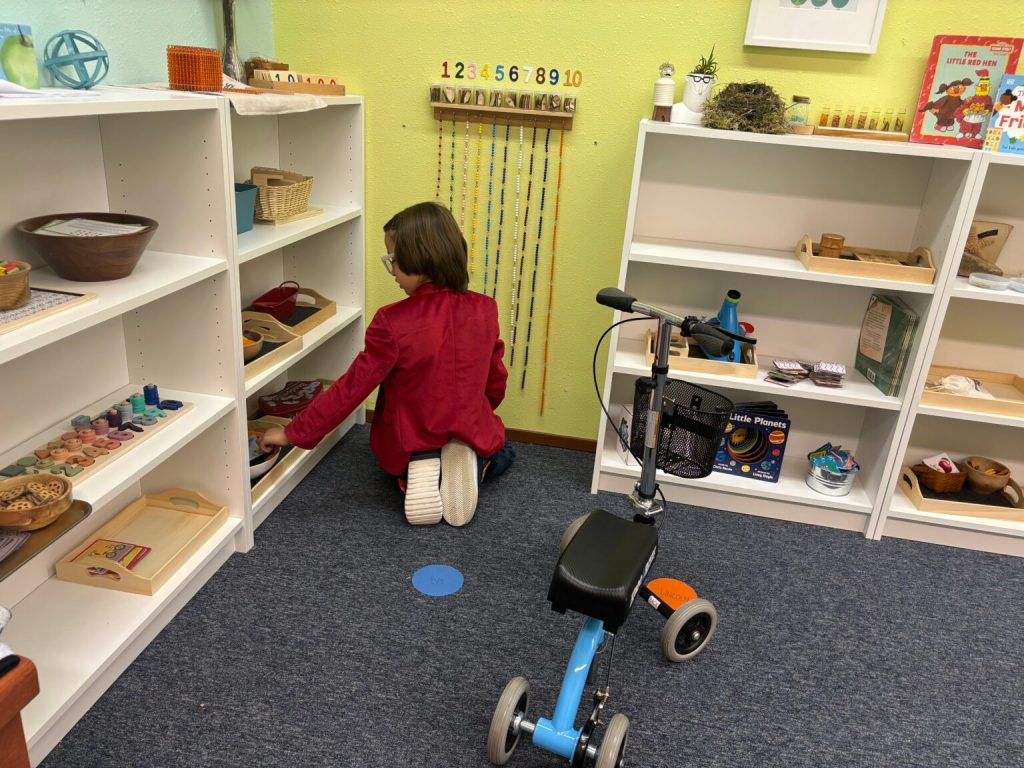Oregon, other Democratic states secure 40-day pause on Head Start immigration requirements
Published 6:53 am Wednesday, July 30, 2025

- A child plays with toys at Gull Harbor Lutheran Preschool. (Rae Deng/Washington State Standard)
“These restrictions were rushed, unclear and would have created confusion,” Oregon Attorney General Dan Rayfield said in response to an agreement with the federal government
A group of Democratic states that sued the federal government over an unprecedented shift in federal policy to bar thousands of immigrants without permanent legal status from accessing community benefits like child care and pre-K won’t be subject to those changes until early September.
The Friday agreement between several federal agencies and the 20 states that sued staves off anticipated closures to services like Head Start and Title X family planning education for an estimated 7,000 Oregonians, as well as freezes to community housing grants and adult learning programs that receive millions of dollars in federal funding.
Those benefits were at risk after Trump administration agencies on July 10 announced rules barring access to community-based public benefits for immigrants without legal status, a move Oregon Attorney General Dan Rayfield said caused “unnecessary harm.”
Trending
“These restrictions were rushed, unclear and would have created confusion for both families and the agencies that serve them,” he said in a written statement. “Without this pause, Oregonians could have lost access to health care, food assistance, and other vital services — not because they were ineligible, but because the rules changed midstream.”
The pause follows a July 21 lawsuit Rayfield and attorneys general from 19 other states and the District of Columbia filed against the federal government over what it called an “unlawful attempt to restrict access to critical health, education and social service programs.”
That was in reference to the Trump administration’s departure from a 1990s federal policy covering individuals in those programs regardless of immigration status, meaning many of those programs were not designed to ask for such status upon registration.
In Oregon, officials estimated that thousands of Oregonians and millions of dollars would have been at risk of shuttering to change their administrative practices should community programs like Head Start need to move forward with paperwork and registration changes in compliance with the restrictions.
They warned that more than 4,700 children and families would be at risk of losing Head Start access and early education programs across the board because programs like it would need time to develop a way to screen participants for immigration status.
Trending
Already, the restrictions have created a chilling effect, with families withdrawing from the program in order to avoid being targeted or asked for documentation they do not have, said Alyssa Chatterjee, early learning system director for the Oregon Department of Early Learning and Care, in a July 21 court declaration.
“Most Head Start children and families, in addition to many Head Start staff, live in or near poverty levels, and experience financial and mental health stressors when funding is at risk,” she wrote. “If programs cannot access funds unless they identify and exclude families based on immigration status, Head Start programs will risk closure.”
Nancy Perin, executive director of the Wilsonville-based Oregon Head Start Association, said she and her fellow organization leaders are breathing a sigh of relief. The group has continued to assist with enrolling children and families in Head Start programs for the beginning of the school year in September, and it has no plans to stop, she said.
“We’re talking about children that are anywhere from birth to five, and we’re going to call them illegal,” she said. “They’re here because this is where their parents have chosen to bring them to and they don’t have a choice in the matter. Why would we be characterizing them as illegal?”
The agreement stipulates that the federal government won’t enforce restrictions on any conduct or funding in the suing states prior to Sept. 4. In another suit against the U.S. Department of Health and Human Services based in the U.S. District Court of Washington, a coalition of Head Start providers and advocates filed July 21 for a temporary restraining order against enforcement of the immigration restriction policies, seeking a postponed enforcement date. The department has opposed the motion, and oral arguments are set for Aug. 5.








